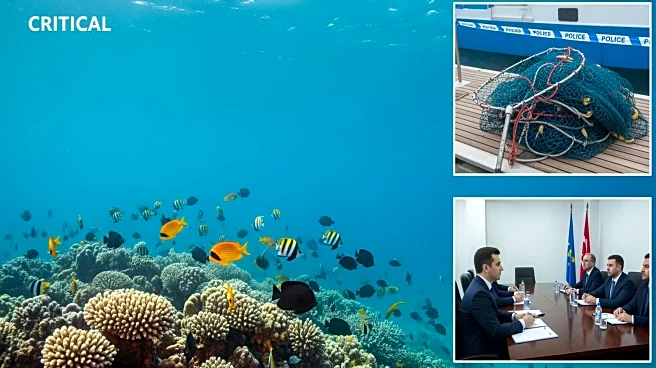What's Happening?
A study conducted by the University of Exeter has found that adherence to fishing guidelines significantly reduces shark mortality rates. Researchers tagged nearly 70 blue, porbeagle, and tope sharks to monitor
their behavior after being caught and released by recreational fishermen. The study revealed that when best practice guidelines were followed, only three sharks died, one from each species. The tags, which remained on the sharks for up to 45 days, provided data on their depth and movement post-release. The findings suggest that the catch-and-release method, when done correctly, allows most sharks to survive and recover.
Why It's Important?
This study is crucial for conservation efforts, as it demonstrates that following proper fishing guidelines can significantly reduce the impact of recreational fishing on shark populations. Sharks play a vital role in marine ecosystems, and their decline can have cascading effects on ocean health. By promoting best practices, the study supports sustainable fishing and helps protect vulnerable shark species. The research also addresses concerns from animal rights groups about the potential harm of catch-and-release fishing, providing evidence that it can be a viable conservation tool when executed properly.
What's Next?
The study's findings may lead to increased advocacy for the adoption of fishing guidelines among recreational anglers. Conservation groups and regulatory bodies might use this data to push for stricter enforcement of best practices in fishing communities. Further research could explore the long-term effects of catch-and-release on different shark species and refine guidelines to enhance their effectiveness. The study also highlights the need for ongoing education and awareness campaigns to ensure that anglers are informed about the importance of following these guidelines.









